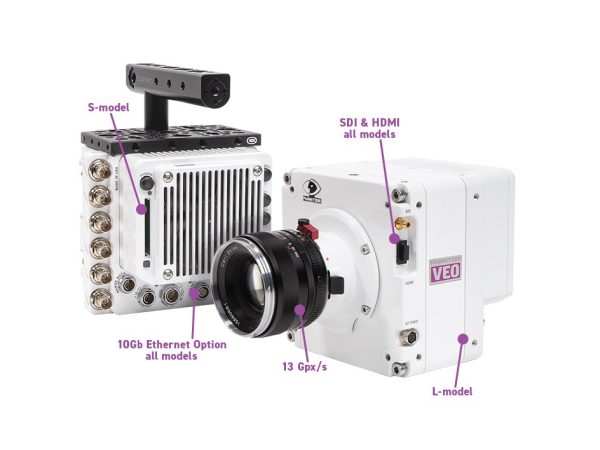Budgeting Made Easy: Simple Steps to Take Control of Your Finances

Empower Yourself by Mastering the Art of Budgeting
Many individuals find themselves struggling with their finances, living paycheck to paycheck and unable to achieve their financial goals. However, the key to overcoming this challenge lies in budgeting. Budgeting is a powerful tool that allows you to take control of your finances and make informed decisions about your money. In this article, we will guide you through simple steps to help you master the art of budgeting and achieve financial stability.
1 – Assess Your Financial Situation
Before you can create an effective budget, it is crucial to assess your current financial situation. This step involves understanding your income, expenses, debts, and savings. Start by gathering all your financial statements, including bank statements, credit card bills, and utility bills. This will give you a clear picture of where your money is coming from and where it is going.
Next, calculate your total income and compare it to your monthly expenses. Categorize your expenses into fixed expenses (such as rent, utilities, and loan payments) and variable expenses (such as groceries, dining out, and entertainment). Identify areas where you can potentially cut back and save money
2 – Set Financial Goals
Once you have a clear understanding of your financial situation, it’s time to set goals. Financial goals provide direction and motivation for your budgeting efforts. Start by setting short-term goals, such as paying off a credit card debt or building an emergency fund. Then, establish long-term goals, such as saving for retirement or buying a house.
When setting your goals, make sure they are specific, measurable, achievable, relevant, and time-bound (SMART goals). This will help you stay focused and track your progress. Write down your goals and keep them visible to remind yourself of what you are working towards.
3 – Create a Budget Plan
Now that you have assessed your financial situation and set goals, it’s time to create a budget plan. A budget is a roadmap that outlines how you will allocate your income to cover your expenses, save for your goals, and reduce debt. Here’s how to create a budget plan:
1. Start with your income:
List all your income sources and their amounts. This includes your salary, side hustles, investment income, and any other sources of income.
2. Allocate for fixed expenses:
Deduct your fixed expenses, such as rent, utilities, and loan payments, from your income. These expenses are essential and must be paid every month.
3. Allocate for variable expenses:
Assign a reasonable amount to cover your variable expenses, such as groceries, transportation, and entertainment. Be mindful of your spending habits and adjust accordingly.
4. Save for your goals:
Allocate a portion of your income towards your financial goals. Treat savings as a fixed expense to ensure consistent progress towards your goals.
5. Track your spending:
Keep a record of your expenses and compare them to your budget plan regularly. This will help you identify areas where you may be overspending and make adjustments as needed.
6. Adjust and adapt:
Budgeting is an ongoing process. As your income and expenses change, adjust your budget plan accordingly. Be flexible and willing to make necessary changes to stay on track.
Conclusion
Taking control of your finances through budgeting is a journey that requires commitment and discipline. By following the simple steps outlined in this article, you can start budgeting effectively and achieve financial stability. Remember, budgeting is not about depriving yourself of things you enjoy but rather about making conscious choices that align with your financial goals. Here are five key takeaways to help you on your budgeting journey:
1. Be Honest and Realistic
When assessing your financial situation and setting goals, be honest with yourself. Acknowledge your current financial reality and set realistic goals that are achievable. This will prevent frustration and help you stay motivated.
2. Prioritize Your Expenses
Not all expenses are created equal. Prioritize your expenses based on their importance and impact on your financial goals. Cut back on non-essential expenses and redirect those funds towards your priorities.
3. Practice Self-Discipline
Budgeting requires self-discipline. Avoid impulsive purchases and stick to your budget plan. Learn to differentiate between needs and wants, and make conscious spending decisions.
4. Seek Support and Accountability
Enlist the support of family members, friends, or financial mentors who can provide guidance and hold you accountable. Sharing your budgeting journey with others can help you stay motivated and make it a more enjoyable experience.
-
Celebrate Milestones
Recognize and celebrate your achievements along the way. Whether it’s paying off a debt or reaching a savings milestone, take the time to acknowledge your progress. Rewarding yourself will reinforce positive financial habits.
FAQs
Q: How long does it take to see the benefits of budgeting?
A: The benefits of budgeting can be realized in the short term and have a significant impact in the long run. In the short term, budgeting allows you to have a clearer understanding of your financial situation and make informed decisions about your money. In the long run, it helps you achieve financial goals, reduce debt, and build wealth.
Q: Is budgeting only for people with limited income?
A: Budgeting is beneficial for individuals at all income levels. Regardless of how much money you earn, budgeting helps you make the most of your income, prioritize expenses, and achieve financial goals. It is a valuable tool for everyone seeking financial stability and success.
In conclusion, budgeting is the foundation of financial success. By assessing your financial situation, setting goals, and creating a budget plan, you can take control of your finances and achieve the financial freedom you desire. With commitment, discipline, and a clear vision, you can make budgeting a lifelong habit that empowers you to make sound financial decisions and create a secure future. Start today and embark on your journey to financial stability.
Read More: Unveiling the Financial Powerhouse: Exploring Manchester’s Thriving Finance Sector











